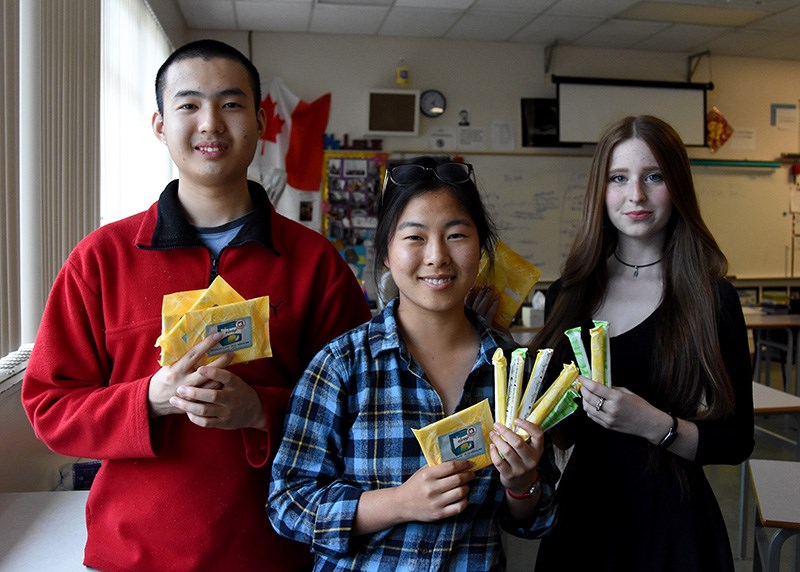Menstrual products will soon be available for free in all B.C. schools but that’s not enough for some Dr. Charles Best secondary school students, who say they should also be free in Coquitlam civic facilities, too.
Monday, a trio of Best students asked Coquitlam council to consider a new policy to make it mandatory for pads and tampons to be free and available in restrooms at city parks, recreation centres and other facilities.
It would cost about $75,000 a year, they said, based on their analysis of a Scottish city that provided feminine hygiene products in civic buildings.
But, more importantly, they said, the initiative would promote gender equality.
Menstrual products are just as important as water, soap, towels and toilet paper in public facilities, Ellen Mee told The Tri-City News, and should be included to meet women’s sanitary needs.
“If they were readily available in washrooms, women would be more comfortable. It’s a health issue,” Mee said.
The idea of campaigning for free menstrual products grew out of concerns that they weren’t easily available in schools, although School District 43 has a policy of providing pads and tampons to girls who ask for them.
Megan Leslie, who teaches Social Justice 12 at Best, started placing the products in baskets around the school with notes in girls’ washrooms, letting them know they were available.
At around the same time, the United Way Period Promise campaign to get feminine products in schools was successfully adopted by the provincial government, which mandated they be placed in girls’ washrooms by the end of the calendar year.
The students say the same concern about costly menstrual products being a barrier to women’s full participation in work and community life extends beyond school, so they started a letter-writing campaign to get the city of Coquitlam to put them in washrooms.
“Men’s needs for hygiene are met with toilet paper and so on but women’s are not being met, which is an issue about general equality,” said student Dajeong Kim.
In doing their research, the Best teens found that one third of Canadian women are affected by the cost of feminine hygiene products and curtail their activities, including work, because they don’t have access to them. This is something men never have to face, the students said.
Student Jim Liu said the issue is an important one for the city to consider because empowering youth fits in the city’s 2019 strategic plan. He also said men should be aware of the issue and not try to ignore it out of fear and ignorance.
“For some, it’s a taboo topic," he said, "which is unfortunate.”



